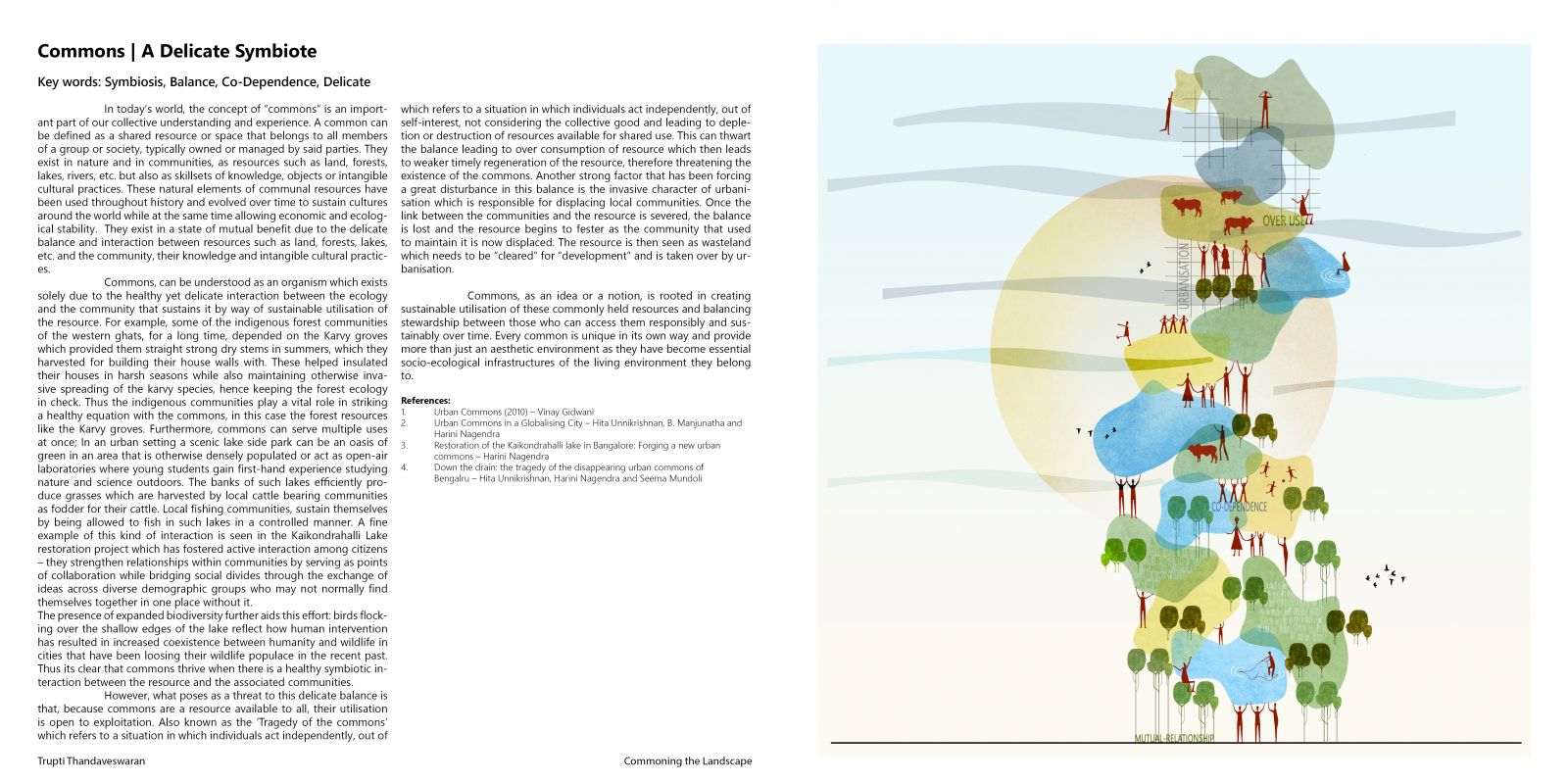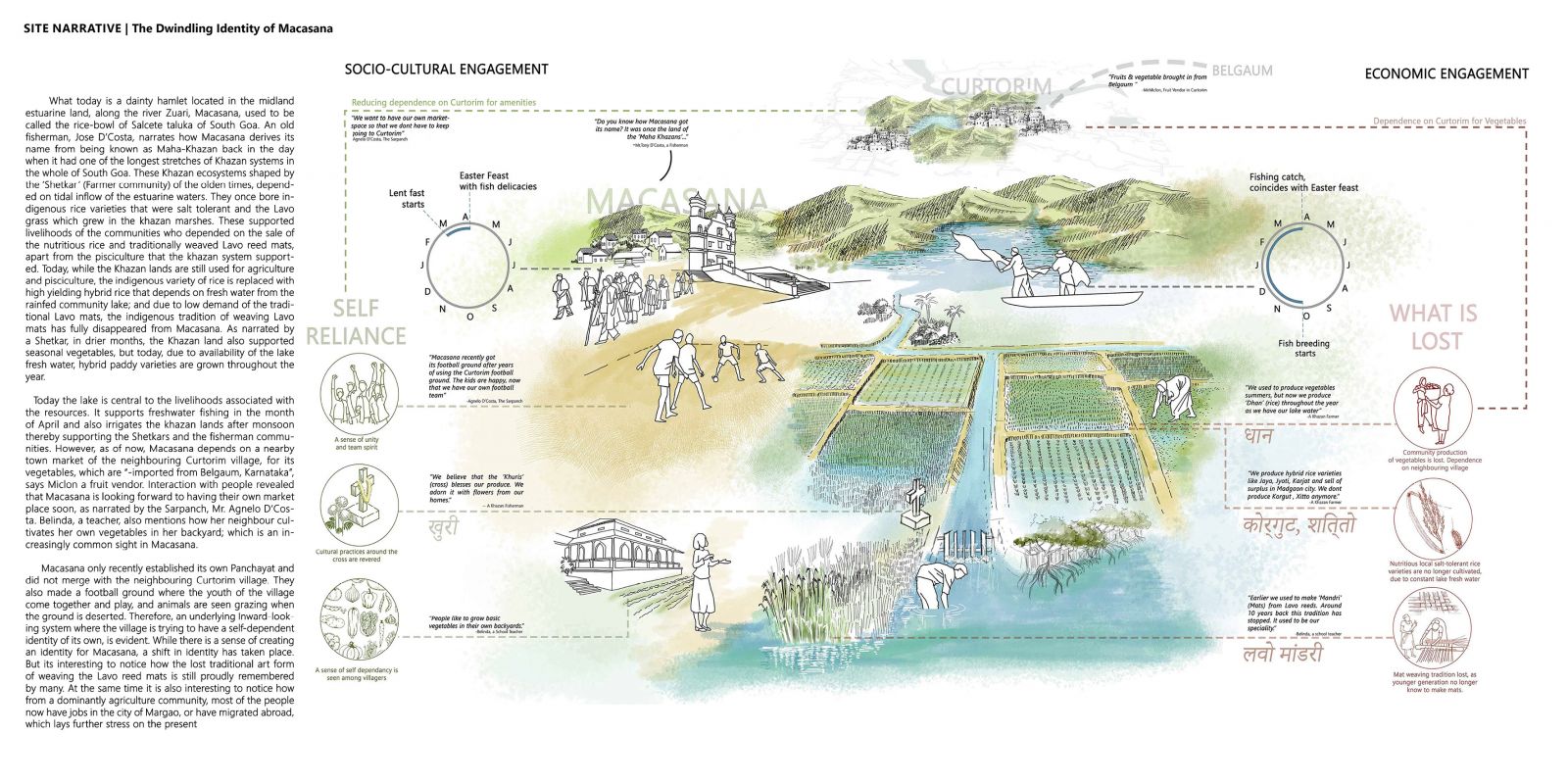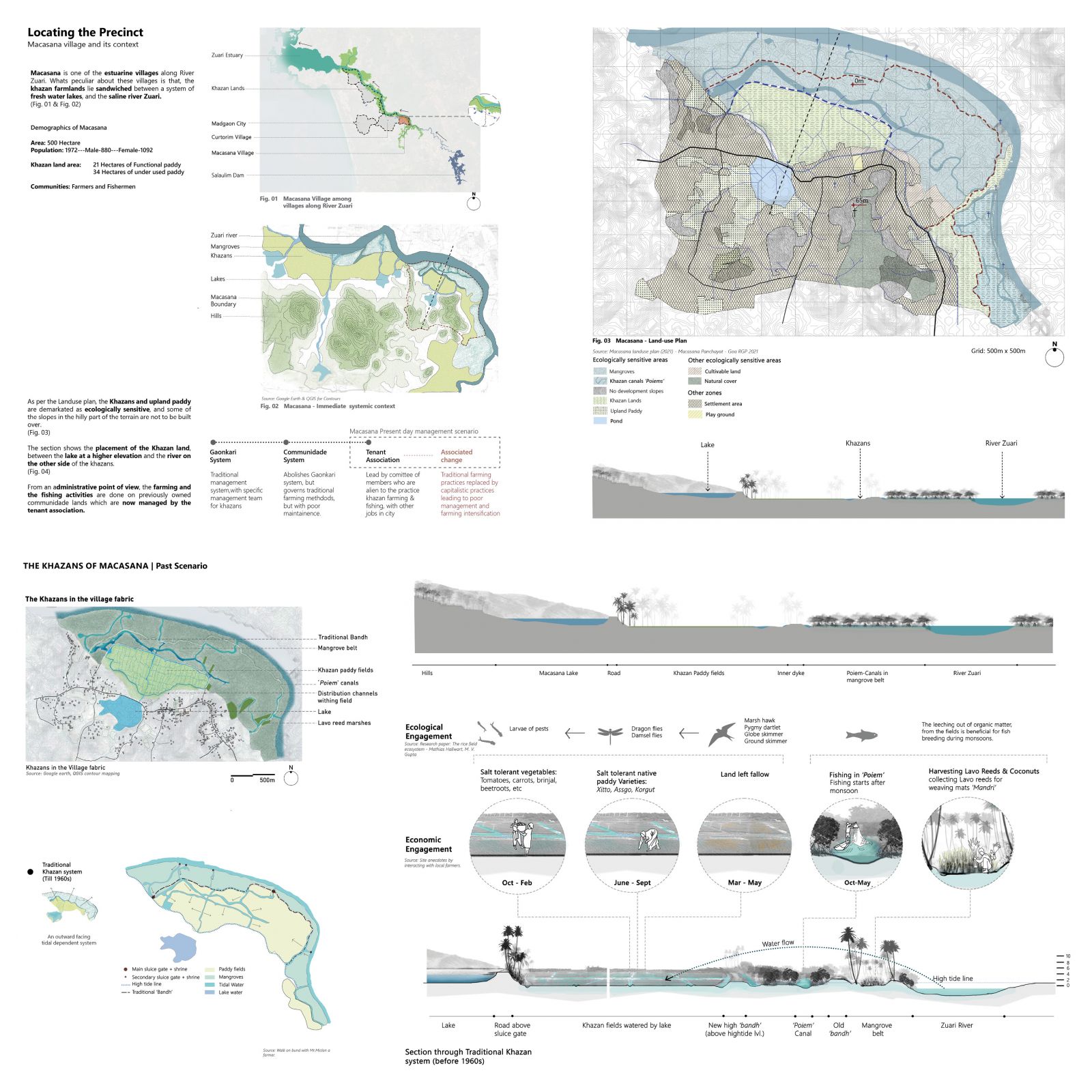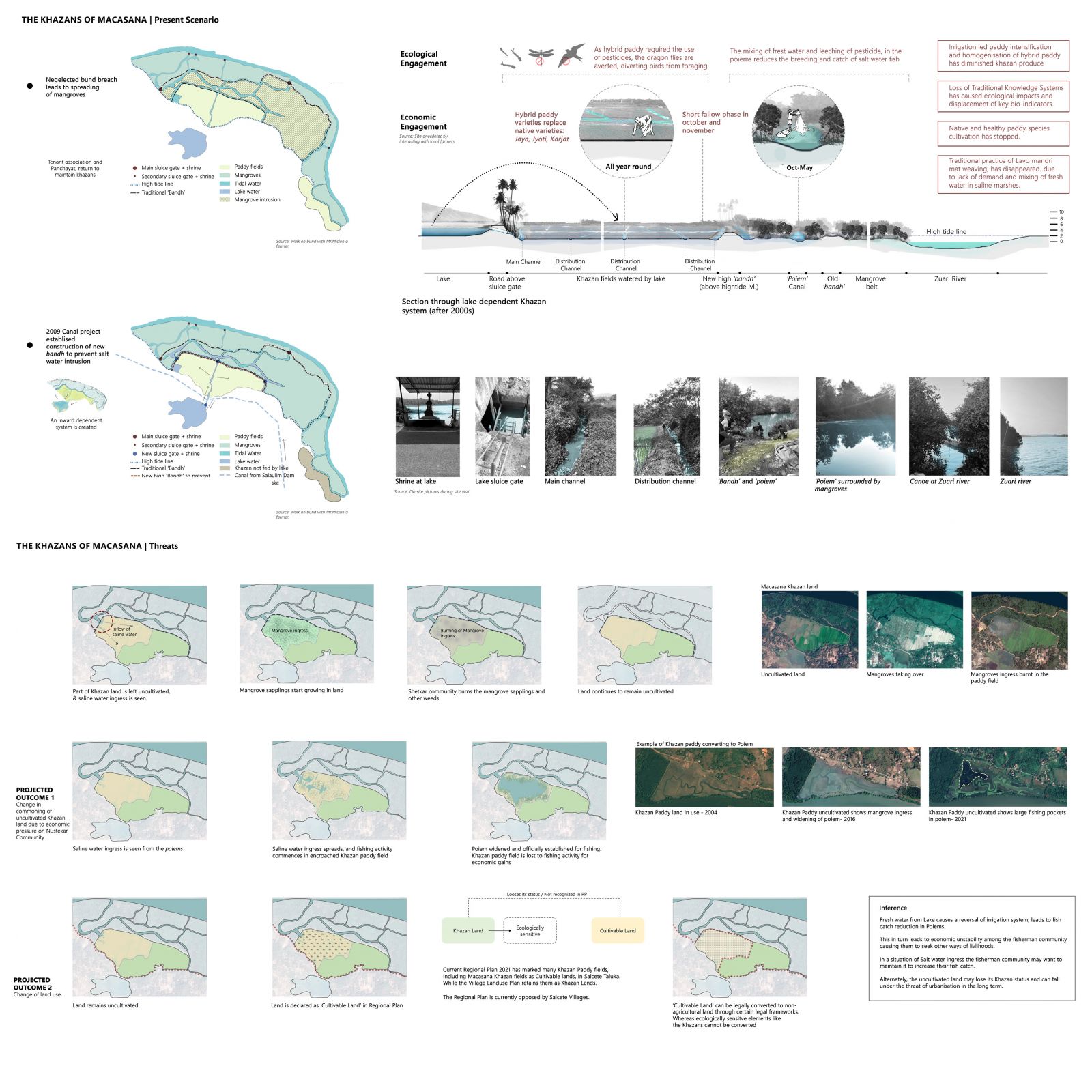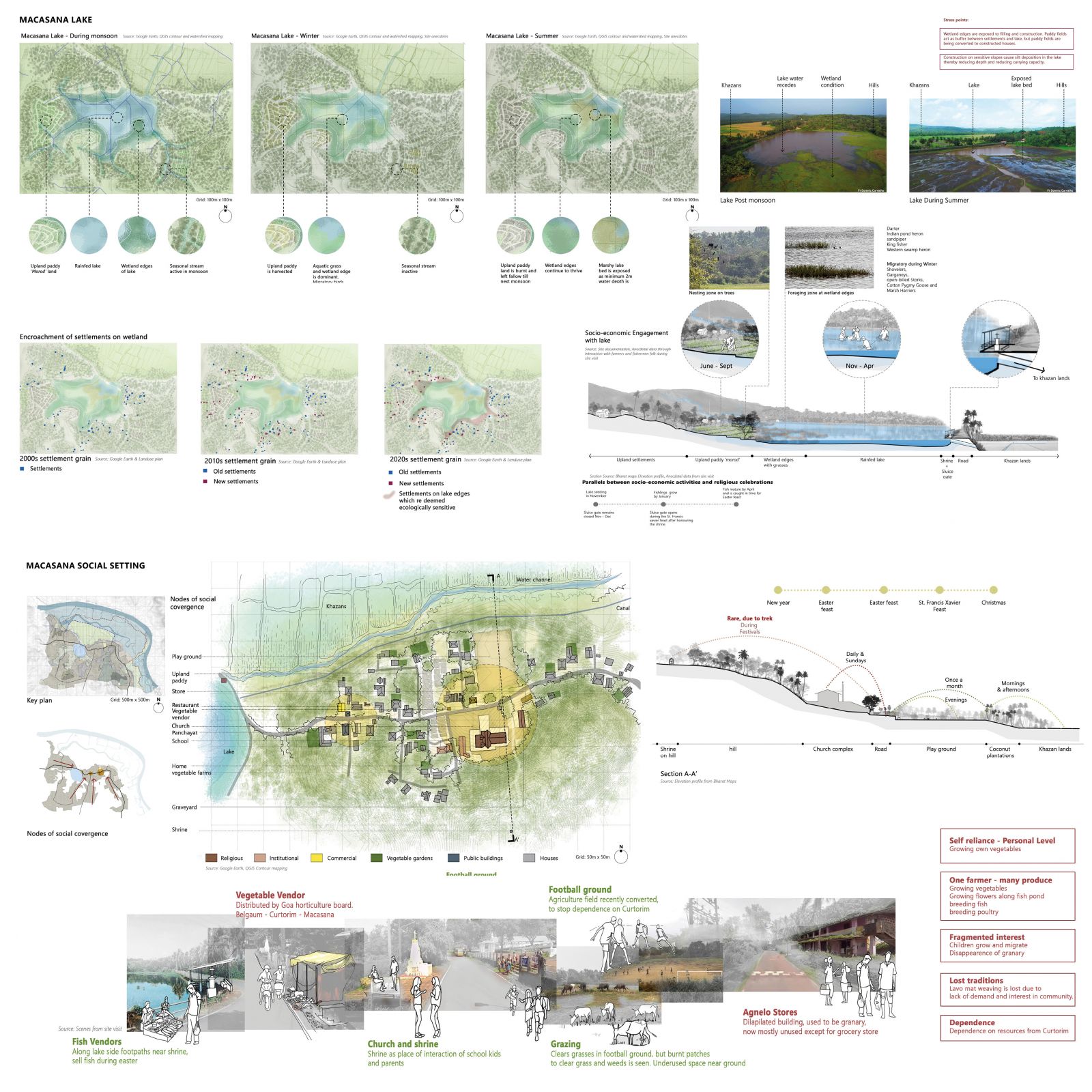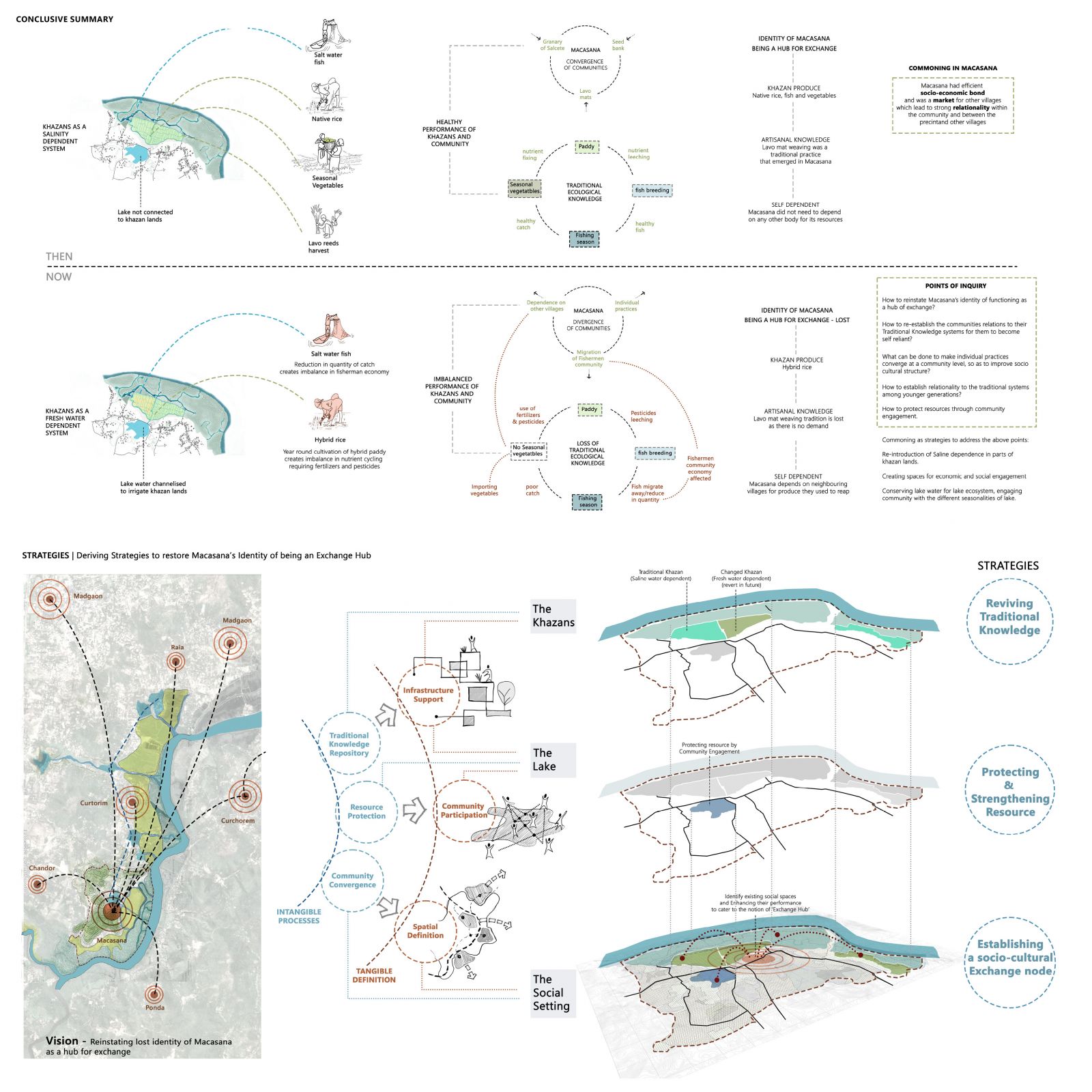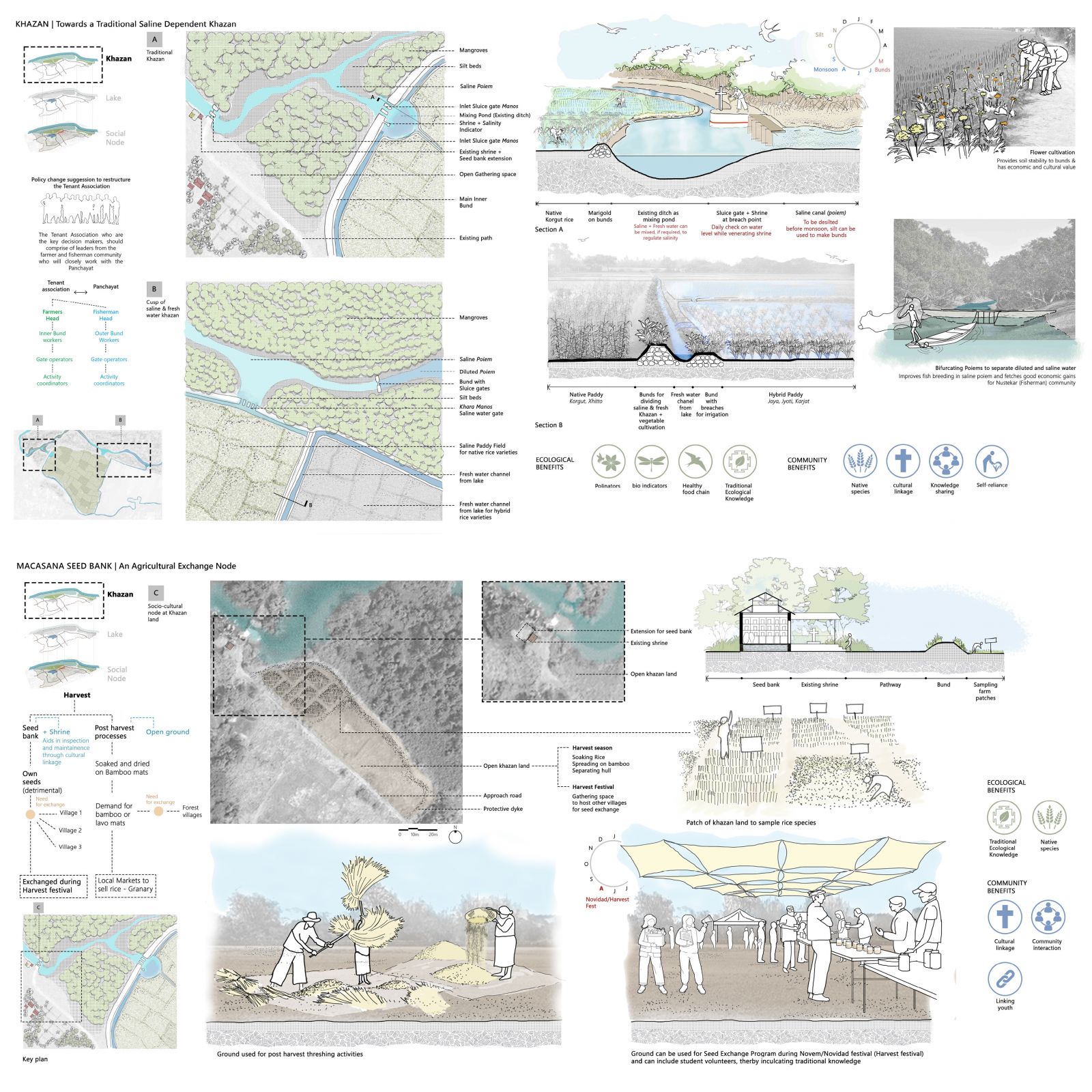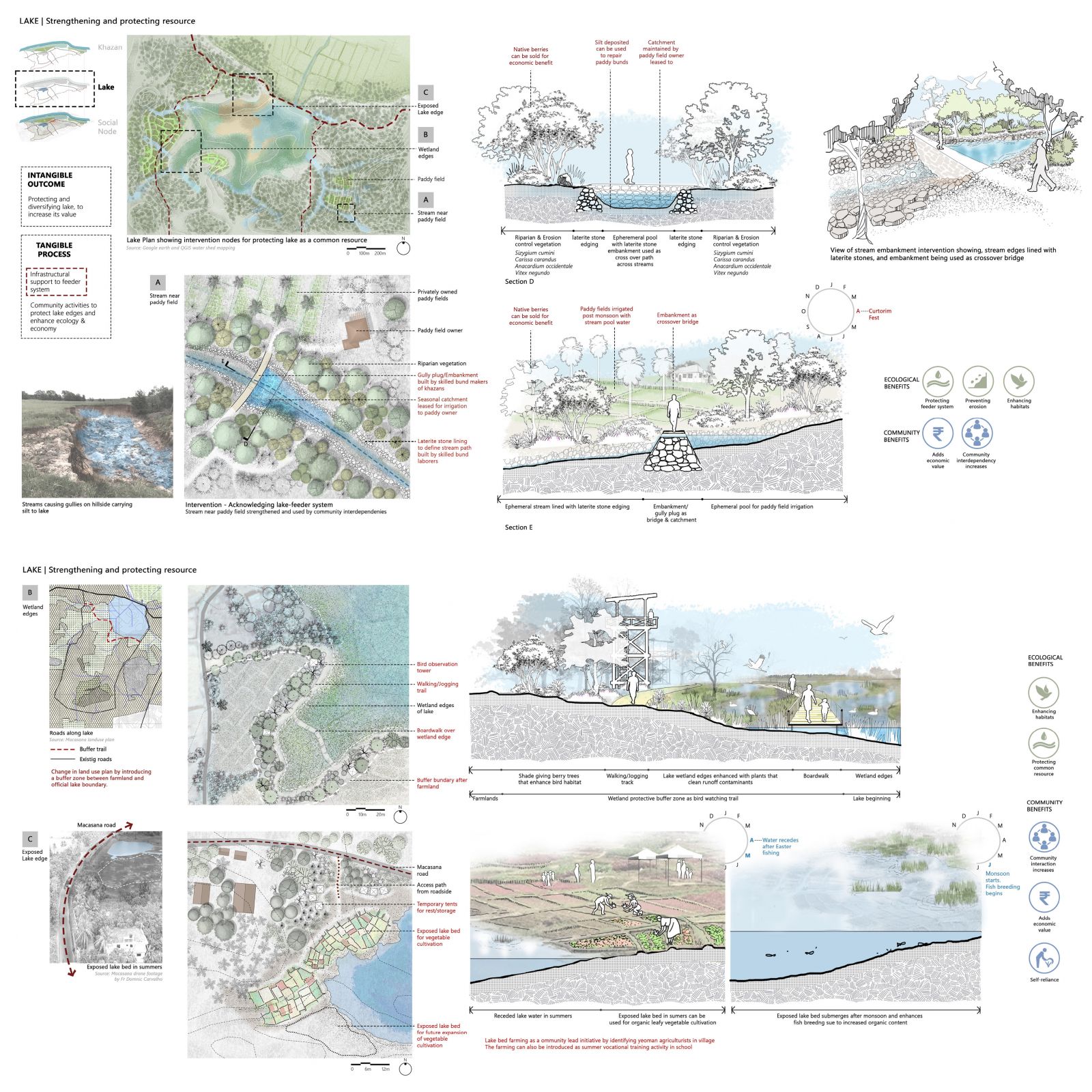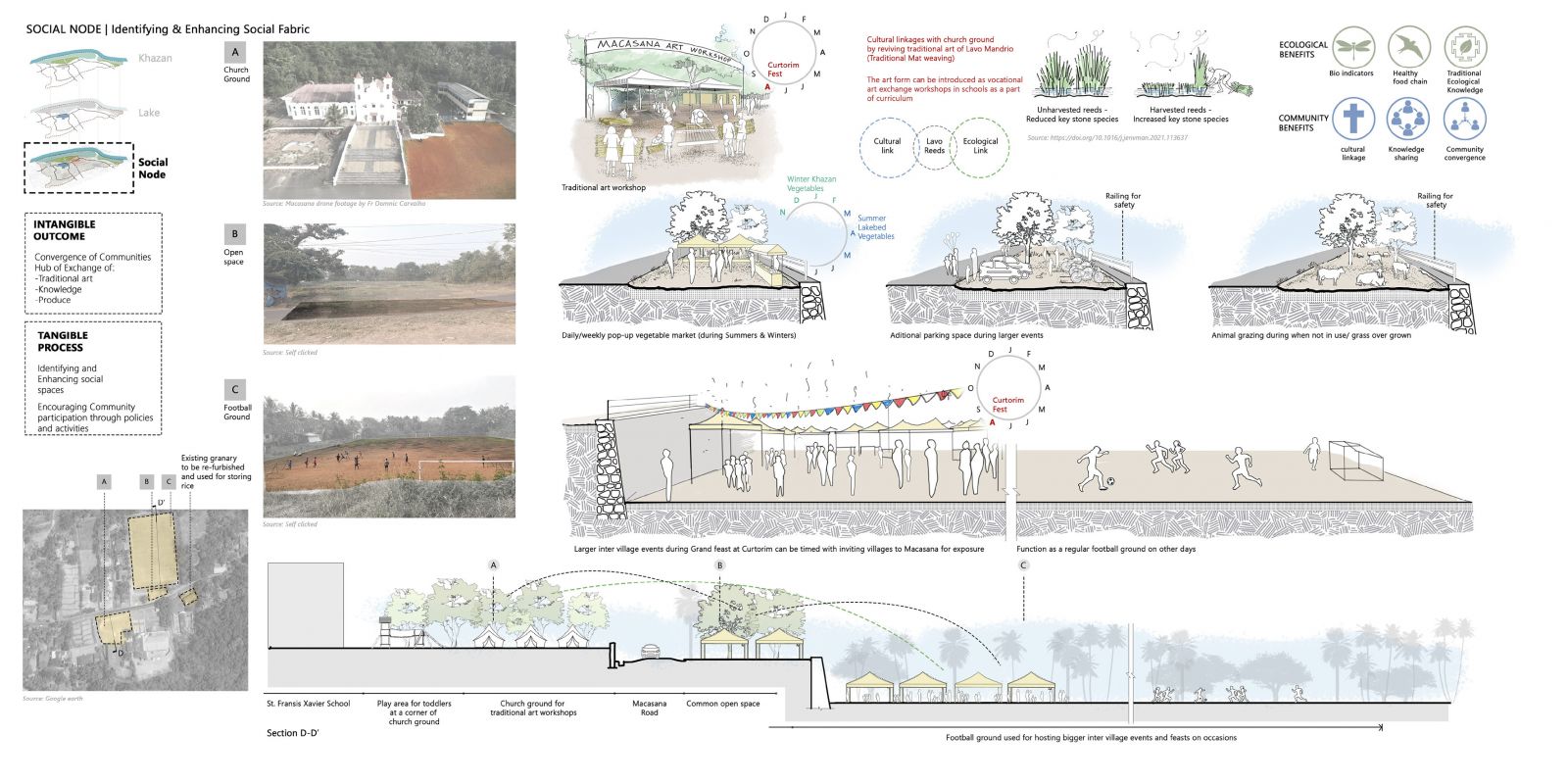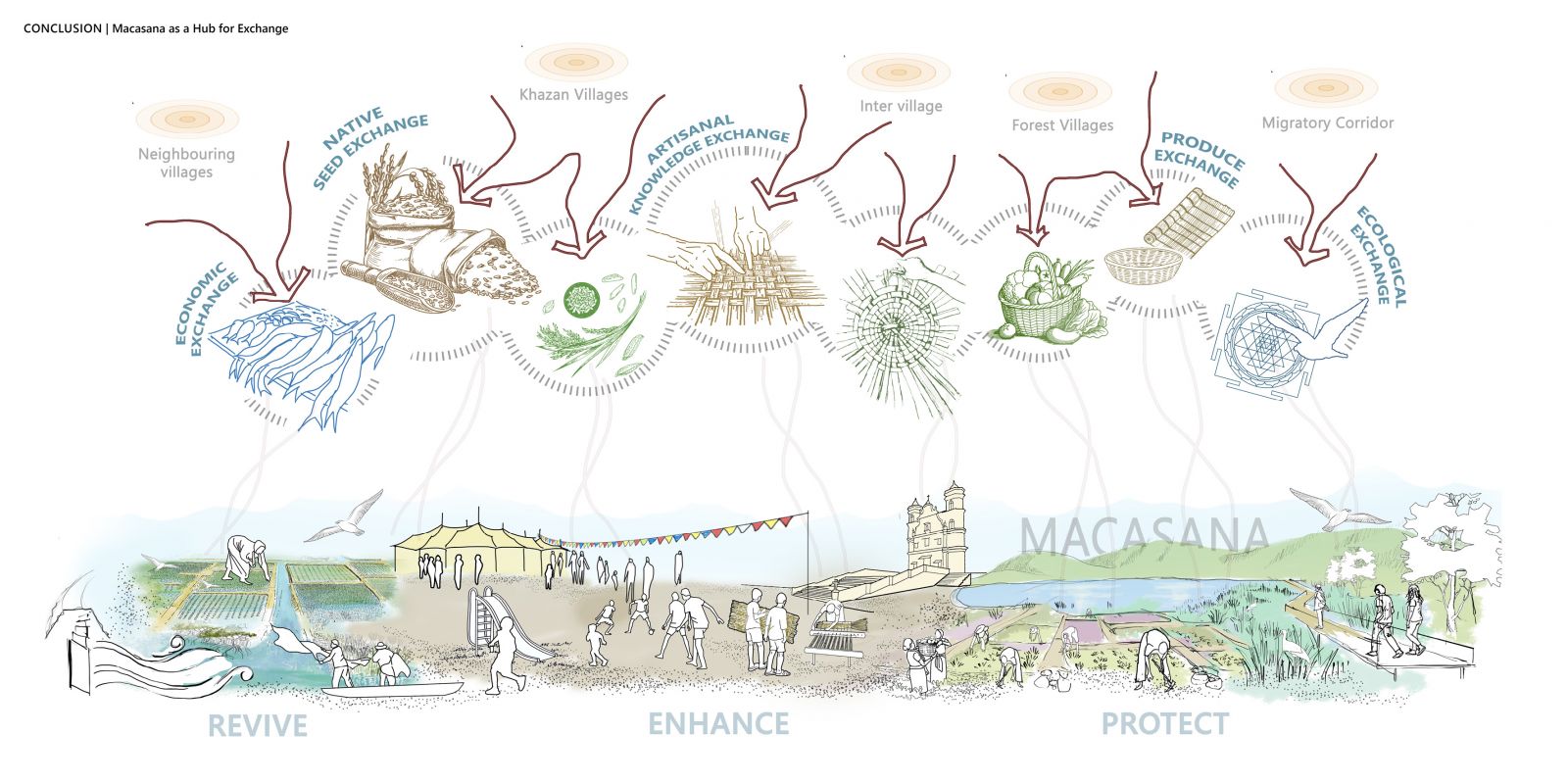Your browser is out-of-date!
For a richer surfing experience on our website, please update your browser. Update my browser now!
For a richer surfing experience on our website, please update your browser. Update my browser now!
Macasana, a hamlet, which got its name from being known as 'Maha-Khazans' in the past, is located along the estuarine river Zuari. Home to 2000 people, it mainly consists of the farmer and fisherman community. The farmers and the fishermen operate on the existing khazan lands, where they used to produce a diverse range of indigenous produce through indigenous practices. In recent times, these practices have been adulterated and hybrid crops have intensified, replacing the indigenous varieties, resulting in an increased dependence on other villages for produce and a lack of self reliance. The aim of this study is to restore the indentity of the precinct as a hub for exchange by diversifying its produce and by reviving indigenous practices, through way of commoning.
View Additional Work